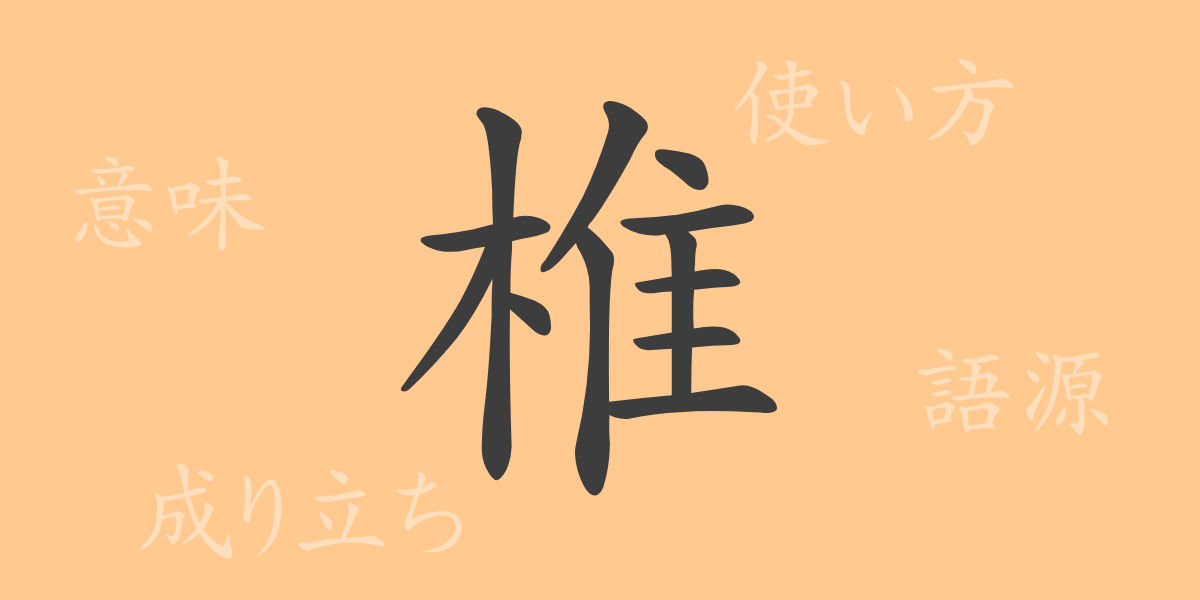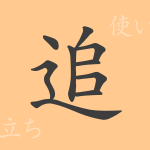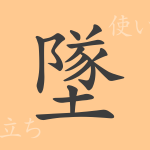The beauty of the Japanese language lies in its complexity. Thousands of kanji, each with its own unique meaning and history, profoundly influence Japanese culture and language. Today, we spotlight the common kanji ‘椎(チン)’, delving into its origins and contemporary usage to uncover its enchanting narrative.
Origins of ‘椎(チン)’
The kanji ‘椎’ combines ‘木(き)’, meaning wood, and ‘隹(とり)’, representing bird, reflecting its etymology. In ancient China, 椎木 (Shii trees) were commonly used for bird nests, giving rise to this character. It has since been used to denote things related to wood or those resembling the shape of Shii trees.
Meaning and Usage of ‘椎(チン)’
‘椎’ generally refers to the Shii tree, broadly signifying wood or timber. It is also used in terms like ‘椎茸(しいたけ)’ (shiitake mushrooms) and ‘椎骨(ついこつ)’ (vertebrae), illustrating its adaptability to various contexts related to its form and origin.
Pronunciation, Stroke Count, and Radical of ‘椎(チン)’
Understanding ‘椎’ requires knowledge of its pronunciation and structure:
- Pronunciation: On’yomi readings include ‘チン’ and ‘スイ’, while the Kun’yomi reading is ‘しい’.
- Stroke Count: ‘椎’ consists of 12 strokes.
- Radical: The radical is ‘木’, associating it with other kanji related to wood.
Phrases and Idioms Using ‘椎(チン)’ and Their Meanings
The use of ‘椎’ in idioms and phrases reflects the richness of expression in Japanese:
- 椎の木 (しいのき) – Not only refers to the Shii tree but also symbolizes sturdiness and reliability metaphorically.
- 椎茸 (しいたけ) – Plays a significant role in food culture.
- 椎骨 (ついこつ) – Refers to an essential part of the human body.
These terms are frequently used in everyday conversation, literature, and specialized contexts.
Conclusion on ‘椎(チン)’
The kanji ‘椎’ embodies diverse meanings and roles within the Japanese language, from its origins to modern-day applications. Symbolizing wood, it not only represents a connection to nature but also serves as a conduit for transmitting culture and history through words. As a common kanji, ‘椎’ continues to be a timeless gift from the past, maintaining its value in our language today.

























